
A presentation from October 2018 produced by the Dutch Ministry of Defense describing the Russian Main Intelligence Directorate’s cyber operations against the Organisation for the Prohibition of Chemical Weapons.
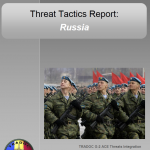
In the last seven years, Russia has reasserted itself as a military force in Eastern Europe and the Caucasus. With the 2008 military incursion into Georgia and the 2014 seizure of Crimea and support for pro-Russian separatists in Ukraine, Russia has assumed a more aggressive, interventionist stance in Europe. In the effort to influence events in Ukraine, the Russians have used what the US Army defines as “Hybrid Warfare” to infiltrate, isolate, and dominate eastern Ukraine and Crimea. This is all a part of the strategy of what can be called “Indirect Action”—the belief by the Russians that they reserve the right to protect ethnic Russians and interests in their former states from domination by Western powers and NATO.
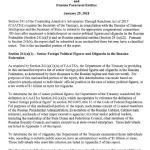
Section 241 of the Countering America’ s Adversaries Through Sanctions Act of 2017 (СААTSA) requires the Secretary of the Treasury, in consultation with the Director of National Intelligence and the Secretary of State, to submit to the appropriate congressional committees 180 days after enactment а detailed report оп senior political figures and oligarchs in the Russian Federation (Section 241 (a)(l)) and on Russian parastatal entities (Section 241 (а)(2)). Pursuant to Section 241(Ь), the report shall Ье submitted in an unclassified form but may have а classified annex. This is the unclassified portion of the report.
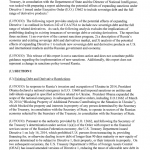
In accordance with Section 242 of PuЬlic Law 115-44 (P.L. 115-44) (“Countering America’s Adversaries Through Sanctions Act” (CAATSA)), the U.S. Department of the Treasury, in consultation with the Department of State and the Director of National Intelligence, was tasked with preparing а report addressing the potential effects of expanding sanctions under Directive 1 issued under Executive Order (Е.О.) 13662 to include sovereign debt and the full range of derivative products.
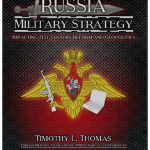
Today’s military innovators are the modern-day scientists and engineers who assist in the creation of contemporary and new concept weaponry; and the military theorists who study changes in the character of war. Digital specialists understand how to develop and employ the capabilities of electronic warfare equipment, satellite technology, and fiber optic cables. While Kalashnikov’s fame is imbedded in Russia’s culture, it may be harder to find a current digital entrepreneur whose legacy will endure as long as his: there are simply too many of them, and their time in the spotlight appears to be quite short, since even now we are about to pass from the age of cyber to that of quantum. It is difficult to predict whose discoveries will be the most coveted by tomorrow’s military-industrial complex, not to mention the decision-making apparatus of the Kremlin and General Staff. Military theorists are playing an important role as well. They are studying how new weaponry has changed the correlation of forces in the world, the nature of war, and the impact of weaponry on both forecasting and the initial period of war.
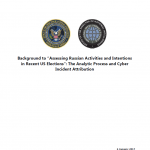
The nature of cyberspace makes attribution of cyber operations difficult but not impossible. Every kind of cyber operation—malicious or not—leaves a trail. US Intelligence Community analysts use this information, their constantly growing knowledge base of previous events and known malicious actors, and their knowledge of how these malicious actors work and the tools that they use, to attempt to trace these operations back to their source. In every case, they apply the same tradecraft standards described in the Analytic Process above.
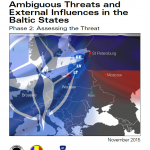
Russia’s strategic objectives in the Baltic region do not focus on the Baltic States as final targets, but on using the Batlic States to discredit and dismantle the North Atlantic Treaty Organization (NATO) and undermining the European Union (EU) by using the Baltic States. Experts in Russia and European security from the United States and the Baltic region agree that Russia could use the Baltic States toward this end by employing any one of a spectrum of actions, to include direct invasion with conventional forces, an incursion and occupation using irregular forces like the one witnessed in Crimea in 2014, or longterm fostering of social, political, and economic instability. Disagreement existed among experts as to which approach was more likely.
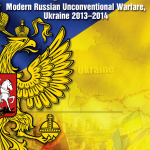
This document is intended as a primer—a brief, informative treatment—concerning the ongoing conflict in Ukraine. It is an unclassified expansion of an earlier classified version that drew from numerous classified and unclassified sources, including key US Department of State diplomatic cables. For this version, the authors drew from open source articles, journals, and books. Because the primer examines a very recent conflict, it does not reflect a comprehensive historiography, nor does it achieve in-depth analysis. Instead, it is intended to acquaint the reader with the essential background to and course of the Russian intervention in Ukraine from the onset of the crisis in late 2013 through the end of 2014.
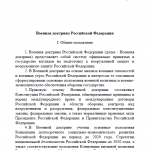
An updated version of the Military Doctrine of the Russian Federation released by the Kremlin on December 26, 2014. The update has received significant media coverage for reportedly naming the North Atlantic Treaty Organization as one of its primary threats, despite the fact that the previous version of the doctrine signed in 2010 contained similar statements.
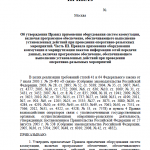
A draft order from the Russian Ministry of Communications written in coordination with the FSB that, if implemented, will require Russian internet service providers to retain all internet traffic and provide the FSB with access for 12 hours after the data is collected, including stored data, phone numbers, IP addresses, account names, social network activity and e-mail addresses. The proposed rule changes have concerned Russian telecommunications providers who say that the requirements violate the Russian constitution.
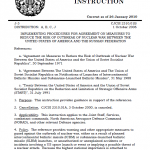
The reference provides warning and other appropriate measures to guard against the outbreak of nuclear war, either as a result of planned intercontinental ballistic missile (ICBM) or submarine-launched ballistic missile (SLBM) launches, or unauthorized or unexplained accidents or incidents involving a US space launch or event or implying a possible threat of a nuclear attack. Because the highest national importance is attached to agreements with the Russian Federation, the United States intends to prevent any event that would violate the agreements and implement actions minimizing the effect of any incident that might occur.
Ten surveillance videos released by the FBI regarding the investigation into the so-called “Illegals Program”, a network of accused Russian spies operating unofficially in the U.S. from the late 1990s to 2010.
This “previously confidential list of people and organizations found to be involved in laundering money and funding terrorism” was presented by Rossiyskaya Gazeta, the Russian-government owned newspaper. It was originally compiled by the Russian Ministry of Justice.
This “previously confidential list of people and organizations found to be involved in laundering money and funding terrorism” was presented by Rossiyskaya Gazeta, the Russian-government owned newspaper. It was originally compiled by the Russian Foreign Ministry.
Six issues of the Open Source Center’s Russia “Cyber Focus” report with dates ranging from August 2009-June 2010.